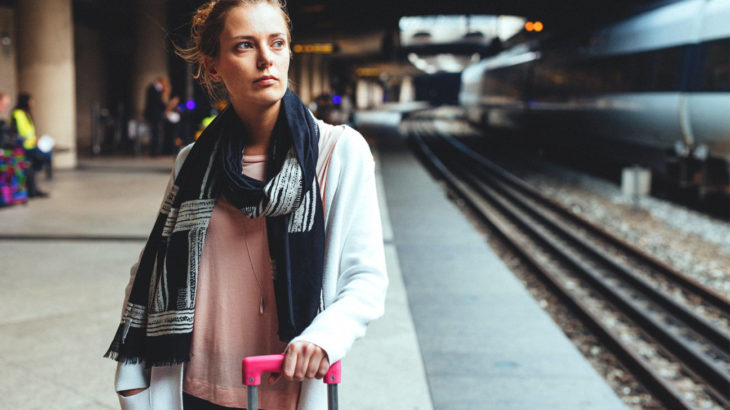So if we’re not all clear on the fact that I deal with sometimes-crippling anxiety as a result of PTSD yet, let’s just put that out there now. I tried to cure it by going on a big adventure, thereby exposing myself to constant emotional stimulation/isolation and it turned out to be an unsuccessful ploy that made me want to just hole up at home for several months straight (which, basically, I did).
The thing is, there are still good reasons to travel, on occasion. In June I went to Madison for father’s day; I went to New York last month to see the final weekend of Kara Walker’s Domino installation and meet some writing colleagues in person (note: Amelia and Jessica are cool online but even cooler in person), and then toward the end of the month I went to Colorado for a family reunion (/introducing the beau to the fam). I’ll be going to Austin probably three times in the next year, for Thanksgiving, Christmas, and SXSW; and Michael and I have talked about maybe visiting DC and Philadelphia next year because they’ve got free museums and museums are life (OK, that’s my reason if not his).
In other words, I like traveling. But it still makes me feel like I’m drowning, though: When I was in New York I got so overwhelmed by the whole hostel experience that I had to beg a couch from a friend (who was happy to oblige, thankfully), and I had panic attacks in Colorado induced by a feeling of both spending way too much time with the people I love and not being productive enough work-wise (yes, this merits a panic attack — think fear of failure/rejection), in addition to just not being at home, in my safe space. Slowly but surely, the more I travel, the more I’m learning what I can do to enjoy myself and have an enriching experience while not going crazy.

Source: A World to Travel
Contents
Consider keeping your trips short
I’m learning that somewhere around day 4, I’m going to start getting antsy and by the end of the day I will want to be home STAT. That being the case, five days is probably about the optimal length for me — when the fourth-day hump comes, I can settle down knowing I’ll leave the next day and just occupy myself with seeing whatever sights I can before I leave.
Don’t abandon your at-home routine
For a lot of people, I’m sure it’s nice to “get away” from routine on vacation. For severely anxious people, though, your routine might be all that keeps you going day-to-day. For me, this means that I have to go for runs four times a week on my training schedule (even if that means running up a mountainside, 8500 feet higher above sea level than I’m used to), and it means at least getting some work done while I’m away.

Source: Healthline
Have a plan or a rough outline for your vacation in advance
If I don’t do this, I feel like I’m wasting the time I paid to spend away from home (cue more anxiety). I had one day in New York when my plans changed and I couldn’t make a decision about what to do, so I got so freaked out and overwhelmed that I just went back to my room and worked all afternoon. The better idea is have options available for each day that can change with weather, level of stress, and level of fatigue.
Do what you can to make sure you sleep soundly
Everyone knows sleep and water are the two foundational things your body and brain need in order to function well (and on that note, also, keep hydrated). Especially for people with disorders like PTSD that also feature sleep disruptions and nightmares, making it through the night in a place you don’t know on a bed that’s not yours can feel like an almost impossible task. I take supplements rather than medications, but whatever you do to sleep in the first place, be extra-vigilant about it on vacation, and maybe prepare yourself with links to YouTube meditation tracks.
More than anything, though: Follow through with your plans to travel. Don’t let your anxiety keep you from living a full, rounded life. It’s possible to make accommodations for your anxiety, so don’t miss opportunities to do things that will make you happy when they arise.
Original by Rebecca Vipond Brink
